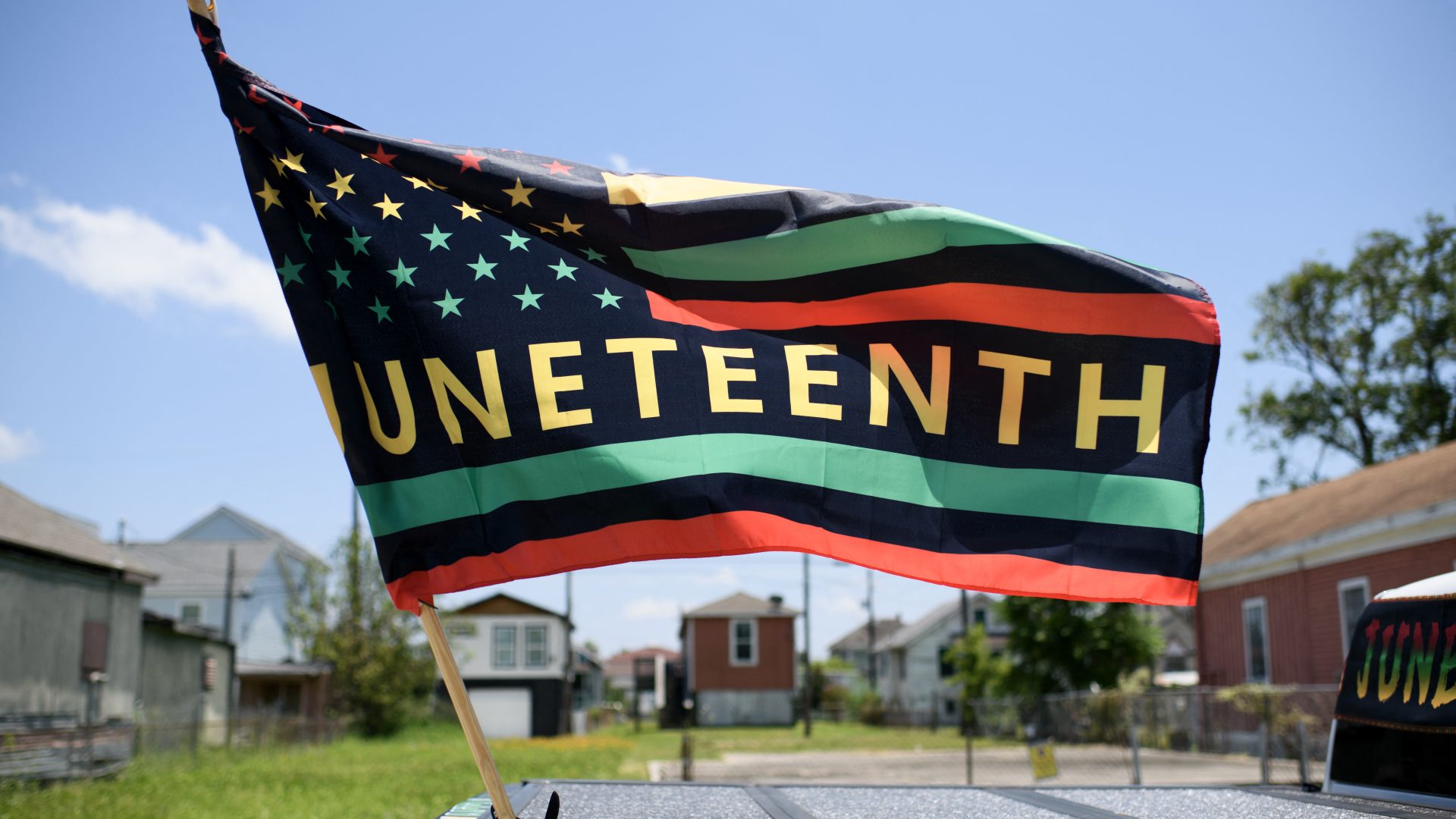
One thing about people from the South — they don’t play when it comes to holidays, especially Juneteenth. Though Juneteenth became a federal holiday in 2021, it was celebrated centuries before. Black Americans revere June 19, 1865, because that is the day Major General Gordon Granger arrived in Galveston, Texas, and announced the end of the Civil War, which ended slavery for good. What used to be a sacred holiday, especially in the South, was heavily commercialized when it became nationally recognized.
Brands threw marketing dollars toward campaigns to appeal to a specific audience and increase sales. After noticing how unauthentic the holiday felt after being accepted on the federal level, Black Americans took to social media platforms to express their frustrations. Those accustomed to much quieter, local holiday celebrations felt that people and brands were exploiting Juneteenth.
Fast-forward to 2024, and some people, especially Zillenial Southerners, still feel that way. They are disappointed but not shocked at how brands continue to capitalize on the holiday. “They’re trying very hard to reach this demographic, and it’s very obvious, ” says Jamie Daurell, a recent Columbia University Graduate who grew up in North Carolina, “It’s definitely what I would expect from the way America is.”
The obnoxious plastering of Juneteenth in retail stores and corporate spaces feels the opposite of how it should be celebrated. Daurell says, “It should feel like a family reunion.” Growing up, she experienced intimate gatherings to celebrate Juneteenth. The Black community in her hometown would host outdoor activities at their local park. Now, the national initiatives are overwhelmingly off-putting and disingenuous to her.
Since federal holidays are embedded into a corporate calendar, marketing initiatives probably won’t cease, but Black Americans have been intentional about making Juneteenth feel communal again. When asked how she’s seen those her age continue to highlight the legacy of Juneteenth, Daurell enthusiastically mentioned her friend’s festival. “The event celebrates black music throughout time and how it’s progressed in our history,” Daurell says, “Since it’s coming from within the black community, it feels very genuine.”
Celebrations by us, for us, reinstate the honor and adoration a holiday like Juneteenth should uphold. That “family” feel of togetherness, celebrating the freedom of our ancestors from their horrific treatment in this country. Luckily, we had the privilege of speaking to the event organizer that Daurell spoke of, Marquéz Cassidy. His Family Reunion: The Juneteenth Special event in North Carolina merged Black Music Month and Juneteenth celebrations.
He resides in a rural community with a low Black population, so knowing more than one demographic would show up to the event, he made sure to “make awareness around the Juneteenth holiday because some people don’t see the relevance as to why we celebrate it or why it should be important to them.” But don’t get it twisted; they partied, too. They had soul food, played games, and did a soul train line. Cassidy enthusiastically mentioned, “We played Billie Holiday, Aretha Franklin and Luther Vandross — stuff you would normally hear at a family reunion.”
Cassidy’s event embodies what many young adults nationwide, especially in the South, do to revere Juneteenth. They have an element of education, ensuring that those who suffered before us are recognized and honored, and then have an element of partying. He says it highlights “the joys and the pains… the tales of our struggle but also celebrates where we are and where we’re headed. It has to be both.”
Beyond hosting events, those in the South remain connected to the history of Juneteenth through stories. Folklore keeps history and traditions alive. “There are people within our midst, grandmothers and grandfathers, great grandmothers and great grandfathers… people that we can sit down with and talk to, and read a book with that sheds light on things we wouldn’t normally hear.”
As those more closely affected by slavery, segregation, and blatant racism are dwindling, we must seek out information from them. A shift occurs through this knowledge transfer, almost like a release, to pioneer history forward, becoming responsible for the information they’ve shared. “The Black leaders have tried to be very intentional about passing on the mantle and elevating the younger people so that new traditions can be born and be carried out,” Daurell says, “I think the face of it [Juneteenth celebrations] is the younger people with support from older generations.”
As the ability and capacity of those before us to advocate decreases, the theme of ‘passing the baton’ increases in local communities. Juneteenth’s legacy can’t be condensed to kente cloth designs on ice cream containers and candles. It’s meant to be revered through activities that inform and reflect on its history and connect communities whose descendants were directly impacted by slavery. Spending time with generations before us and taking in their stories is how history and traditions are kept alive. Southerners get that and are therefore committed to preserving the culture around Juneteenth.
About the Author: Shelby Denise Smith is a Social Media Editor and Freelance Writer. She’s passionate about lifestyle, wellness, travel, and culture. Smith enjoys packaging the insight she receives into stories that can positively impact the livelihood of others.